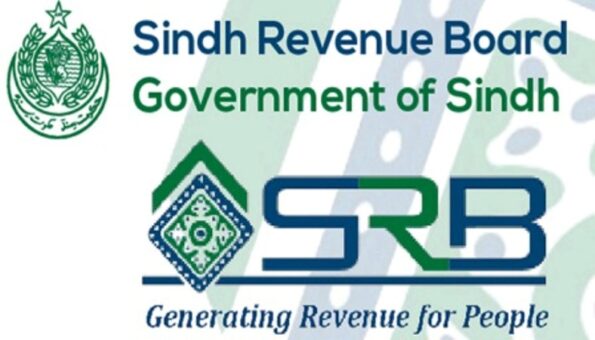KARACHI: In a bid to reinforce tax compliance and streamline revenue collection, the Sindh Revenue Board (SRB) has taken decisive action against customs clearing agents who have repeatedly failed to fulfill their monthly return filing obligations.
(more…)Category: Exclusive
-

Classes of taxpayers require sales tax registration
KARACHI: Federal Board of Revenue (FBR) has listed classes of taxpayers, who are required to get sales tax registration to declare their monthly transactions to the tax authorities.
(more…) -

Income Tax Ordinance 2001: procedure for claiming refund, additional payment for delay
KARACHI: A commissioner of Inland Revenue is responsible for making payment at KIBOR plus 0.5 percent per annum for late payment of income tax refund.
(more…) -

Income Tax Ordinance 2001: FTR taxpayers not required to file returns
The Federal Board of Revenue (FBR) in Pakistan has introduced a noteworthy amendment, providing substantial relief to taxpayers falling under the Final Tax Regime (FTR).
(more…) -

Income Tax Ordinance 2001: Commissioner’s power to make provisional assessment
The Income Tax Ordinance, 2001 (ITO 2001) in Pakistan has granted power to the Commissioner to initiate provisional assessments when a person’s concealed asset is impounded by any government agency.
(more…) -

Income Tax Ordinance 2001: Commissioners power to amend assessment of annual income return
KARACHI: A commissioner of Inland Revenue has been empowered to alter annual income tax return of a person on detection of tax evasion or avoidance.
(more…) -

Income Tax Ordinance 2001: Commissioner IR empowered to make assessment for non-compliant taxpayers
KARACHI: In a significant move to enhance tax compliance, the Federal Board of Revenue (FBR) has updated the Income Tax Ordinance, 2001, granting Commissioners of Inland Revenue the authority to conduct ‘best judgement assessment’ for taxpayers who fail to file their annual returns and meet their tax obligations.
Under Section 121 of the amended ordinance, the commissioner is empowered to initiate a best judgement assessment in several scenarios. These include a taxpayer’s failure to furnish a statement as required by a notice under sub-section (5) of section 115, failure to submit a return of income in response to a notice under sub-section (3) or sub-section (4) of section 114, and failure to furnish a return as required under section 143 or section 144, among others.
The section stipulates that if a taxpayer neglects to produce necessary accounts, documents, and records required for assessment, the Commissioner may, based on available information and to the best of their judgement, assess the taxable income and determine the corresponding tax liability. Any such assessment is considered to have been made independently of the taxpayer’s filed return or revised return, rendering the latter of no legal effect.
Upon completing the assessment, the Commissioner is obligated to issue an assessment order to the taxpayer promptly. The order must include details such as the taxable income, the amount of tax due, any tax payments made, and information regarding the process of appealing the assessment order, including the time, place, and manner.
The revised ordinance also imposes a time constraint on the issuance of assessment orders under this section. Sub-section (3) dictates that such orders can only be issued within five years after the end of the tax year or the income year to which they relate. However, an exception is provided in cases where a notice for filing a return of income under sub-section (4) of section 114 is issued; in such instances, the assessment order must be issued within two years from the end of the tax year in which the notice is served.
The FBR’s move is aimed at bolstering the country’s tax collection efforts by ensuring that taxpayers fulfill their obligations and discouraging non-compliance. The provision of ‘best judgement assessment’ grants tax authorities the tools necessary to make informed decisions in the absence of complete and accurate information from non-compliant taxpayers.
-

Income Tax Ordinance 2001: Notice can not be issued after 180 days for incomplete return
KARACHI: A commissioner of Inland Revenue is required to send notice to taxpayers for incomplete annual income returns within 180 days from end of financial year in which return was filed.
(more…) -

Schedule for filing annual returns
KARACHI — The Federal Board of Revenue (FBR) has issued the schedule for filing the annual income tax return, emphasizing the significance of adhering to the specified deadlines.
(more…) -

SRB suspends sales tax registration of logistic company
KARACHI: Sindh Revenue Board (SRB) on Thursday suspended sales tax registration of a logistic company for depositing short payment.
According to a notice the SRB suspended the sales tax registration of M/s. AY Logistics for depositing short paid amount of Rs1,074,212 pertaining to tax periods September 2017 to July 2018.
The SRB said that non-payment of sales tax on services and null filing of returns even if one is providing taxable services is contravention of Sindh Sales Tax Act, 2011 and the rules made thereunder.
Record available shows that M/s. Opneport Pakistan (Pvt) Limited and M/s. Agility Logistic (Pvt) Limited have declared purchases of Rs12,874,183 from M/s. AY Logistics during September 2017 to July 2018, however, M/s. AY Logistics have declared sales of Rs1,105,000 during November 2018 with SRB leading to sales suppression of Rs11,769,183 and short payment of sales tax on services of Rs1,074,212.
This is serious violation of provincial sales tax laws, the SRB added.
The SRB directed the taxpayer to comply the notice by February 22, 2019 and take action, included:
To declare all sales and discharge all Sindh sales tax dues along with default surcharge
To e-file the true and correct monthly sales tax returns for the tax periods.
Submit details of all sales and purchases record for the tax periods with copies of income tax returns of 2016/2017 and 2017/2018 and copies of sales tax returns file with other provincial sales tax authorities.